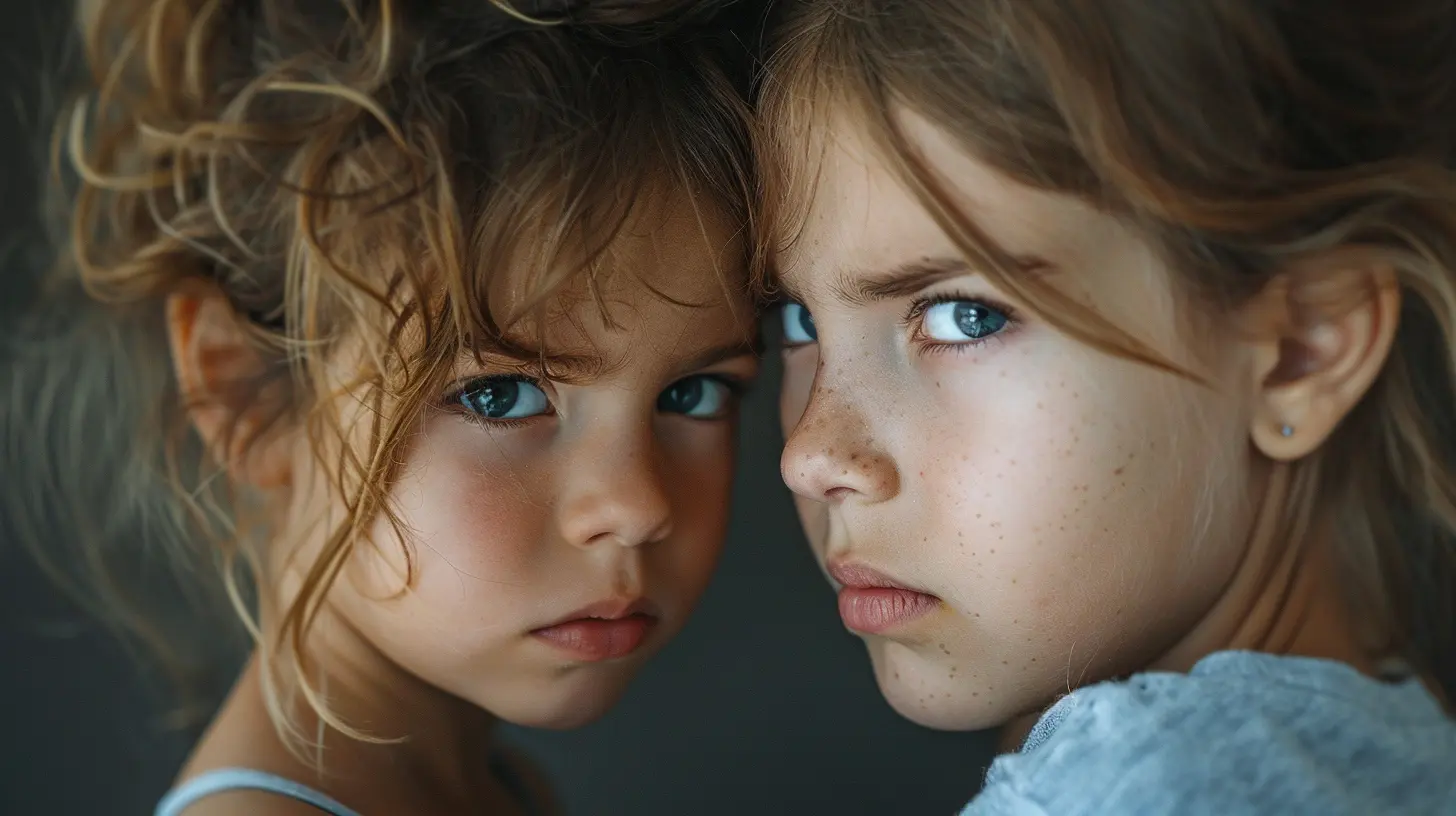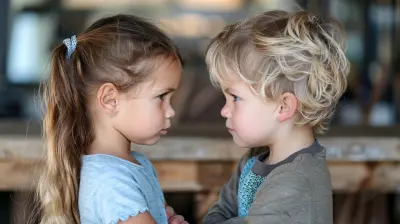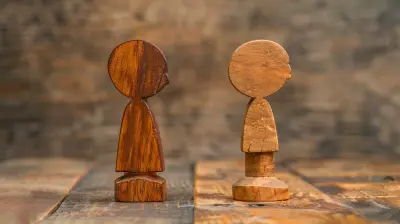How to Stay Calm During Challenging Parenting Moments
20 June 2025
Parenting is one of life’s greatest adventures—but let’s be real—it can also be a rollercoaster of emotions. One moment you're laughing at your child's adorable antics, and the next, you're bracing yourself while your toddler screams in the cereal aisle. If you've ever felt like you're about to lose it, you’re not alone—and you're definitely not a bad parent. Staying calm during challenging parenting moments doesn’t mean you're weak. It means you're human. And you’re trying.
So, how do we keep our cool when our little ones are losing theirs? Buckle up, because we’re about to dive deep into the parenting trenches and uncover effective, heart-centered ways to keep calm even when chaos reigns.
Why Keeping Calm Matters More Than You Think
First, let’s talk about why this even matters. Because when you’re elbow-deep in spilled milk or facing the fifth meltdown of the morning, it’s tempting to just react. But slowing down and staying calm does more than keep your blood pressure from boiling over.Your kids are little sponges—they watch how you handle stress, frustration, and disappointment. When you stay calm, you're modeling emotional regulation. You're teaching them how to handle their own big feelings in a healthy way. That’s a gift that lasts a lifetime.
The Brain Behind the Blow-Up: Understanding What's Really Happening
Ever notice how your child’s tantrum seems to trigger something primal in you? That’s not an accident. Our brains have what's called a "fight or flight" response—designed to keep us safe. But when you're parenting, especially in high-stress moments, that same response can make you snap before you even know what hit you.When your toddler throws a toy at your head or your teen slams their door, your amygdala (the emotional part of your brain) kicks in, overriding your logical thinking. The trick? Learning how to pause long enough to let your prefrontal cortex (the rational part) catch up. That pause—though tiny—can change everything.
1. Breathe Like You Mean It
It might sound like a cliché, but deep breathing works. Not just any breathing—intentional, belly-filling, oxygen-rich breaths. When you breathe deeply, you’re telling your brain: “Hey, we’re safe. We’re okay.”Try this: Inhale for four seconds, hold for four seconds, exhale slowly for six seconds. Repeat. Do it a few times, even if it feels silly in the moment. It's like hitting the reset button for your nervous system.
2. Stop, Drop, and Ground Yourself
Sometimes, your emotions get caught in a spin cycle. You're reacting without realizing it. One powerful trick? Grounding.Here’s a quick grounding exercise:
Look around and name:
- 5 things you can see
- 4 things you can touch
- 3 things you can hear
- 2 things you can smell
- 1 thing you can taste
It brings you back to the now—the only place where effective parenting actually happens.
3. Use a Mantra (Yes, Really)
Having a go-to phrase can pull you back from the edge when you're about to lose it.Try mantras like:
- “This is hard, but I can handle it.”
- “Their behavior is not about me.”
- “I am the calm in their storm.”
Saying these—aloud or silently—can help anchor your emotional state, especially when things feel totally out of control.
4. Take a Parent Time-Out
Who says kids are the only ones who get time-outs? Sometimes you need one too—and that's okay.If your kids are safe, step into another room for a minute. Splash cold water on your face, count to ten, or just give yourself a break. You're not abandoning your child; you're choosing not to parent from a place of frustration and fatigue.
5. Lower the Volume
It's natural to want to raise your voice when tensions rise. But here's a twist—try doing the opposite.Speak softly.
Whisper if you have to.
Often, kids stop to listen when your tone changes drastically. Plus, you’ll feel calmer just by lowering your voice. It’s like magic—reverse psychology for your own nervous system.
6. Remind Yourself: It's Not Personal
It really, really isn’t.That tantrum? It’s not a condemnation of your parenting. That eye-roll from your tween? It’s developmentally appropriate behavior, even if it pushes every button you’ve got. Kids are still learning how to be humans. They're messy, unfiltered, raw. Don’t take it personally—it’s usually not about you.
7. Focus on Connection Over Correction
When your child is spinning out of control, your instinct might be to fix it, teach them a lesson, or stop the behavior immediately. But sometimes, what your child really needs is connection.A hug.
A calm tone.
A gentle “I’m here. I see you're struggling.”
Correcting behavior is important—but the timing matters. When big emotions take over, connection comes first. Correction can come later—when everyone's calm.
8. Prepare for the Storm Ahead of Time
Let’s face it—challenging moments are inevitable. So why not prepare for them?Try this:
- Identify your triggers (Think: whining, defiance, messes).
- Notice your physical cues when stress builds (tight jaw? pounding heart?).
- Plan a calming strategy you can use next time.
It’s like parenting with a fire extinguisher—ready before the flames burst out.
9. Practice More Self-Compassion
Here’s a truth bomb: If you're expecting yourself to be a perfect parent, you’re setting yourself up for failure. Parenting is hard. You're allowed to struggle. You're allowed to have moments you're not proud of. You're allowed to cry in the laundry room.Instead of beating yourself up, ask:
- “What would I say to a friend in this moment?”
- “Am I doing the best I can with the tools I have?”
Spoiler: The answer is probably yes.
10. Come Back to Repair
We all lose our cool sometimes. If you’ve already had your “not-so-proud” moment today—take heart. What matters more is what comes after.Apologize. Repair.
Tell your child:
- “I was feeling overwhelmed, and I didn’t handle it the way I wanted to.”
- “I love you no matter what, even when I get upset.”
Repair builds trust. It’s not about being perfect—it’s about being real.
11. Fill Your Own Tank First
You can’t pour from an empty cup—how often have you heard that one? But it’s true. Sleep-deprived, overworked, under-appreciated parents are ticking time bombs. And parenting from burnout rarely ends well.Make space for self-care—whatever that looks like for you. A walk. A hot cup of coffee. A good book. A call with a friend. It's not selfish—it's survival.
12. Create a Calming Environment at Home
Your surroundings matter more than you think. If you’re constantly navigating clutter, noise, and chaos, your nervous system is already on edge.Consider simple changes:
- Soft lighting
- Calming music
- Decluttering common areas
- Creating a “calm corner” for both you and your child
When your environment feels like a sanctuary, it’s easier to find your inner peace—even when tantrums erupt.
13. Laugh When You Can
Sometimes, laughter is the only thing standing between you and a meltdown—yours or theirs. Kids do funny stuff. Even when they’re being little gremlins, they have this magical way of making you chuckle.Allow yourself to find humor in the chaos. It’s not minimizing the hard stuff—it’s balancing it with the good stuff. Humor can take the sting out of even the roughest day.
One Final Thought: It’s Okay to Ask for Help
You don’t have to do this parenting thing alone. Whether it’s seeking support from a partner, joining a mom group, or chatting with a therapist—reaching out isn't weakness. It’s wisdom.Some seasons are heavier than others. But with the right tools, support, and a whole lot of grace, you'll get through it. And so will your children—because you're showing them what resilience really looks like.
Final Words
Parenting will test you in ways you never imagined. It will stretch your patience, challenge your beliefs, and sometimes bring you to your knees. But here’s the thing: Staying calm doesn’t mean the chaos disappears. It means you’re choosing to respond instead of react. You're choosing connection. Love. Presence.And every time you pause, breathe, and lean in—you’re changing the legacy for your family.
You’ve got this. Deep breaths, friend. One moment at a time.
all images in this post were generated using AI tools
Category:
Positive DisciplineAuthor:

Karen Hurst
Discussion
rate this article
2 comments
Zella Matthews
Thank you for this valuable article! Your tips on staying calm during challenging moments are insightful and practical. It’s reassuring to know we’re not alone in our struggles as parents. Looking forward to implementing your suggestions!
September 19, 2025 at 3:34 AM

Karen Hurst
Thank you for your kind words! I'm glad you found the tips helpful. Wishing you all the best as you implement them!
Sablethorn Holland
This article truly resonates with the chaos of parenting. I often find myself overwhelmed in tough moments, but the reminders to breathe, pause, and shift perspective are invaluable. It’s a journey of learning not just for our children, but for us as parents too. Thank you for these insights!
June 22, 2025 at 4:27 PM

Karen Hurst
Thank you for your thoughtful comment! I'm glad the article resonated with you—parenting truly is a journey of growth for everyone involved.


